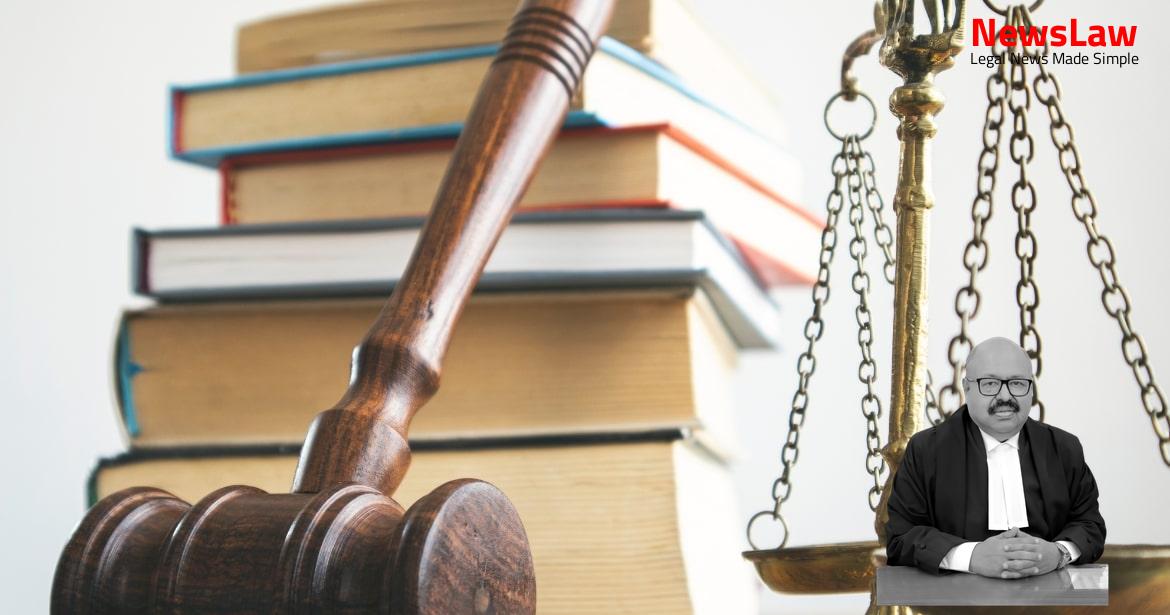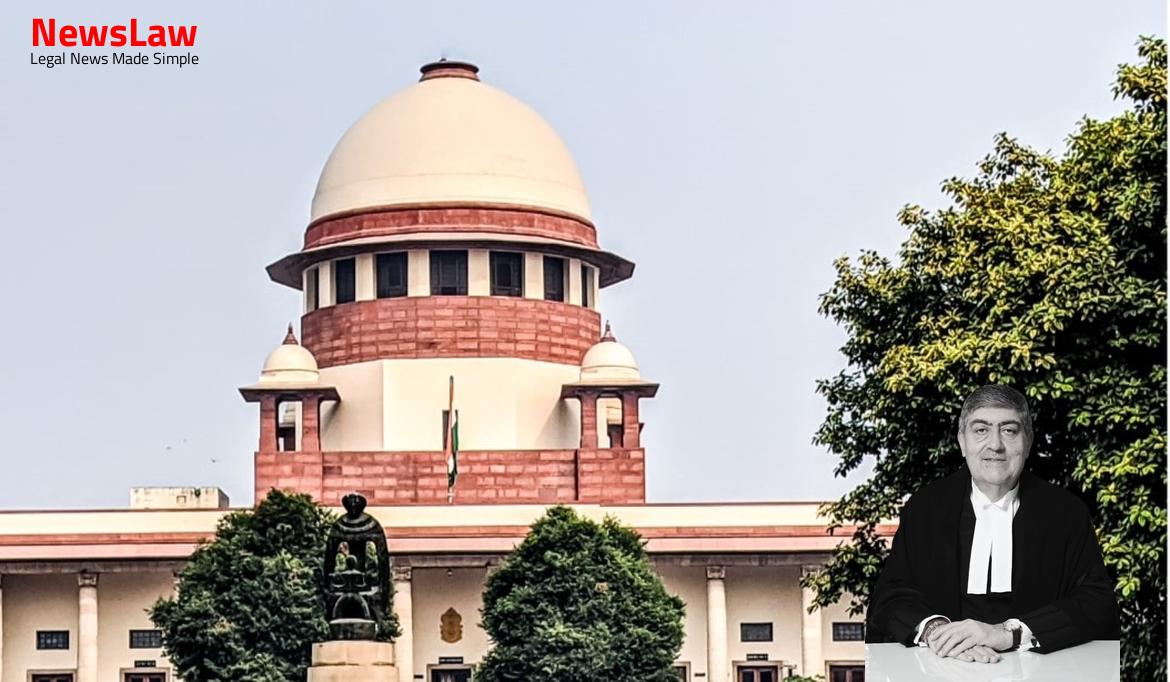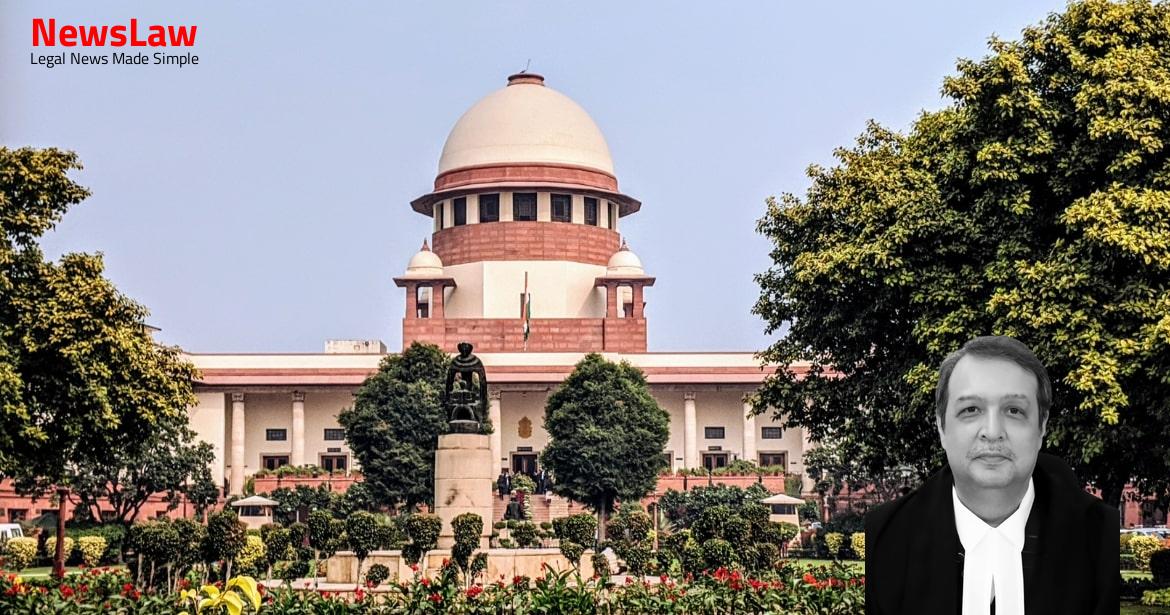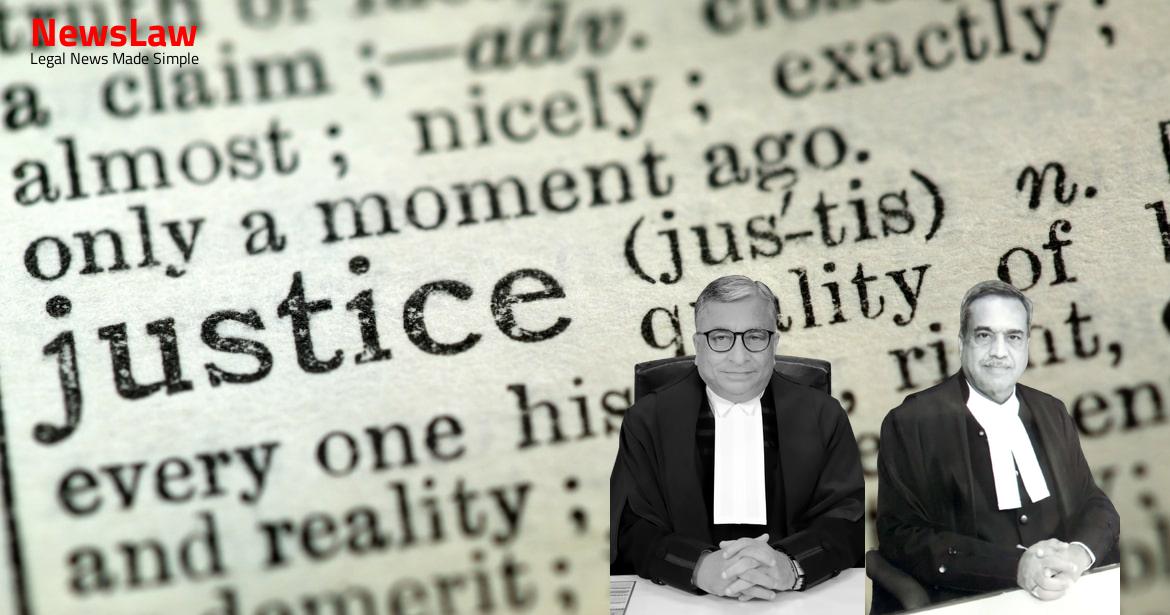Explore the nuanced legal analysis conducted by the court regarding investigation jurisdiction in a significant corruption case. The court’s detailed examination of applicable laws and provisions provides important insights into the legal complexities surrounding the case, highlighting the importance of procedural adherence and jurisdictional considerations in such matters.
Facts
- CBI conducted a surprise raid in Fertico Marketing and Investment Private Limited in March 2011, revealing coal selling in the black market.
- State Government granted consent to DSPE for investigating corruption cases, with a condition to seek prior permission for cases involving public servants under its control.
- Coal India Limited introduced a new policy in October 2007 requiring Fuel Supply Agreements (FSA) to be signed, leading to an FSA between the appellants and Coal India Limited in April 2008.
- CBI found connivance of unknown government officials in the illegal selling of coal, causing a loss of Rs.36.28 crore to the Central Government.
- An FIR was registered in April 2011 against Mr. Anil Kumar Agarwal and others under various sections of IPC and Prevention of Corruption Act.
- Two officials from DIC Chandauli were found to have partaken in the conspiracy by sending false reports to Northern Coalfields Limited to obtain coal at subsidized rates.
- Sanction was granted to prosecute the two officials in May 2012.
- Charge sheet was filed in May 2012 against the appellants for various offenses.
- High Court was approached to quash the charge sheet and summoning order, questioning the legality and jurisdiction of CBI’s investigation.
- Single Judge of the High Court found CBI’s investigation to be without the required permission of the UP Government, breaching Section 6 of DSPE Act.
- The High Court framed four questions for determination, including the legality of investigations, the nature of the cases, and the application of criminal conspiracy charges.
- Disagreement on whether the State Government’s sanction to prosecute implies permission for investigation.
- The Division Bench answered the first question by stating that the Government Order dated 15.6.1989 permits investigation and it was not a case of assuming suo motu jurisdiction by the CBI.
- The second question framed by the Single Judge was returned unanswered due to lack of affidavit from the State Government.
- The matter was brought back before the Single Judge who directed the State Government to file an affidavit.
- The State Government filed affidavits as directed by the High Court.
- The Single Judge later referred two questions to the Division Bench for decision.
- The Single Judge found it appropriate to refer the questions due to a disagreement with the earlier view and lack of binding precedent.
Also Read: Presumption of Genuine Endorsements in Cheque Case
Arguments
- An offence under the Prevention of Corruption Act can only be registered against a public servant.
- The mandatory requirement for invoking Section 120B of the IPC is that there must be a meeting of minds.
- The State Government’s stand was that prior permission was limited to public servants under their control and not private individuals.
- The State Government’s consent after completion of investigation was deemed valid under Section 6 of the DSPE Act.
- If a public servant under the State Government is found to be involved in a crime during further investigation, prior permission of the State Government for investigation would not be required.
- Post-Facto consent was granted by the State Government for two public servants named in the investigation.
- The learned Single Judge found that Post-Facto consent was sufficient for CBI investigation against the two public servants whose names were not in the FIR but in the charge-sheet.
- The question of consent can only be raised by public servants named in the FIR and not by private individuals before the Court.
- The respondent argued that unless the appellants can demonstrate prejudice or miscarriage of justice due to the procedural irregularity of not obtaining prior consent, the investigation would not be vitiated.
- The respondent pointed out that a general consent has been granted for investigating matters under the PC Act, unless it involves a public servant under the State Government’s control.
- For public servants, the respondent highlighted that consent was granted after completing the investigation, which cures any defect.
- The respondent asserted that post-facto sanction granted on 7 September 2018 does not cure the prior consent defect.
- Both counsels argued that the proceedings should be quashed and set aside, as there were no pleadings by the appellants-public servants regarding prejudice or miscarriage of justice.
- The respondent emphasized that no interference is warranted with the High Court’s judgment.
- The respondent referenced Sections 5 and 6 of the DSPE Act, explaining the provisions governing the extension of powers and jurisdiction of the Special Police Establishment.
- The respondent contended that the prior consent under Section 6 of the DSPE Act is considered directory, not mandatory.
- The Senior Counsel for the accused public servants argued that without a valid consent, the CBI had no authority to investigate the matter.
Also Read: Medical Negligence and Compensation: A Landmark Decision
Analysis
- The validity of an investigation does not affect the competence of the court.
- An investigation carried out without proper orders may relate to prejudice or miscarriage of justice.
- In cases involving public servants under the control of the State Government, prior permission is necessary for investigation.
- Private individuals can be subject to investigation without specific consent under Section 6 of the DSPE Act.
- The High Court erred in setting aside the Special Judge’s order taking cognizance of the offence.
- State of Uttar Pradesh has accorded general consent for DSPE to exercise powers and jurisdiction in the state.
- The Government of Uttar Pradesh issued a notification on June 15, 1989, granting consent for the extension of powers and jurisdiction of the Delhi Special Police Establishment (DSPE) in the whole of Uttar Pradesh for investigating offenses under the Prevention of Corruption Act, 1988.
- The notification specified that investigations could also cover attempts, abetments, and conspiracies related to the mentioned offenses or any other offenses arising from the same facts.
- However, investigations involving public servants under the control of the State Government required prior permission from the State Government.
- Section 462 of the Criminal Procedure Code states that no finding, sentence, or order of a Criminal Court shall be set aside solely because the proceedings took place in a wrong local area, unless it resulted in a failure of justice.
- The case of Union of India v. Prakash P. Hinduja was referenced in relation to this issue.
- Section 465 of the CrPC further elaborates on when a finding or sentence can be reversed or altered due to errors, omissions, or irregularities in the judicial proceedings.
- It emphasizes that to reverse a decision, the error or irregularity must have led to a failure of justice, and the objection should have been raised at an earlier stage in the proceedings.
- Section 465 of the Cr.P.C. was considered in State of Karnataka v. Kuppuswamy Gownder and Others.
- The provision is mandatory, but the trial cannot be set aside unless miscarriage of justice is proven.
- Obtaining prior consent under Section 6 of the DSPE Act was discussed in the context of investigation jurisdiction.
- No specific prejudice or miscarriage of justice was pleaded by the public servants in the present case.
- The court’s findings in Mayawati (supra) regarding CBI inquiry scope were discussed.
- High Court’s decision regarding the consent under Section 6 of the DSPE Act was upheld.
- The learned Single Judge’s handling of questions 2, 3, and 4 in the judgment was highlighted.
- Previous cases like Prabhu v. Emperor AIR 1944 PC 73 provided precedent on investigation legality and trial outcome.
- The Court emphasized that illegality in investigation does not affect trial competence.
- Recent case Kanwal Tanuj v. State of Bihar and Others discussed DSPE Act provisions regarding cross-state investigation.
Also Read: Remand of Writ Petition for Restoration and Decision on Merits
Decision
- The court has not considered the merits of the matter.
- All questions available to both parties are kept open.
- The criminal appeals are disposed of with the mentioned terms.
- All pending applications are also disposed of.
- The matter is remitted to the learned Single Judge for deciding specific questions.
Case Title: M/S FERTICO MARKETING AND INVESTMENT PVT. LTD. Vs. CENTRAL BUREAU OF INVESTIGATION AND ANR. ETC. (2020 INSC 645)
Case Number: Crl.A. No.-000760-000764 / 2020



